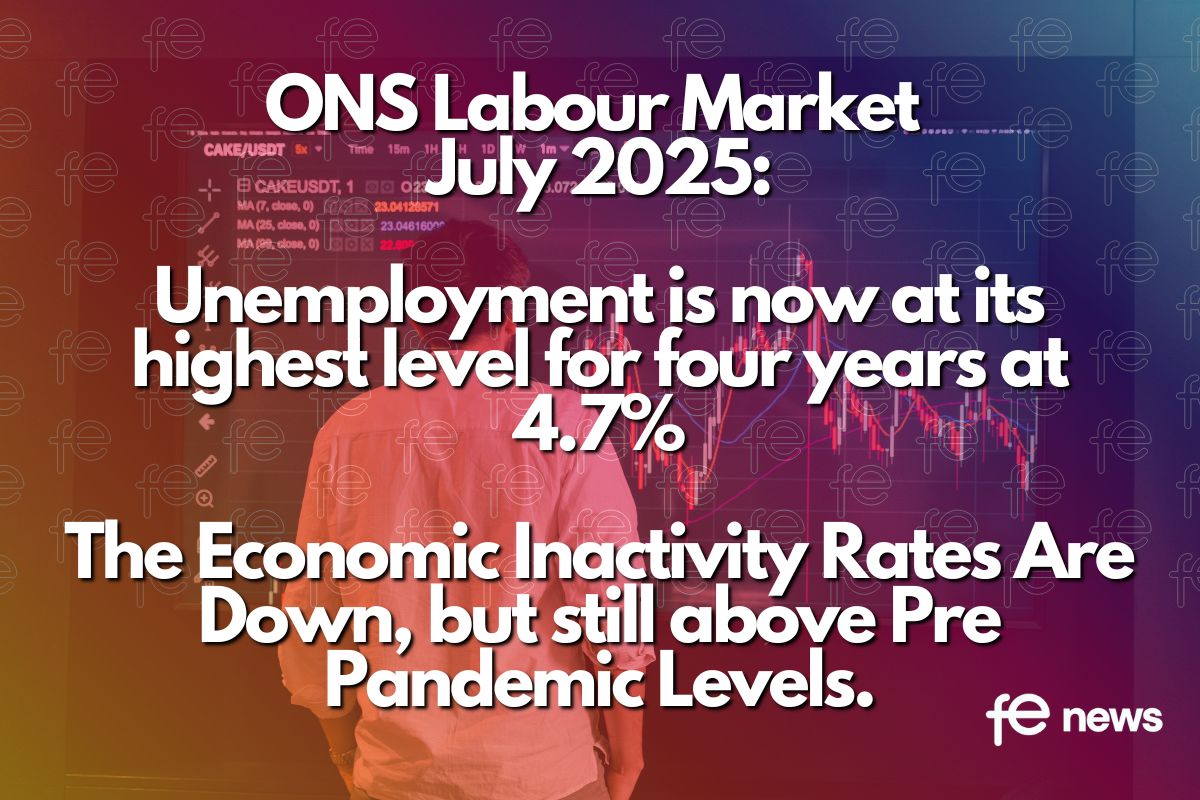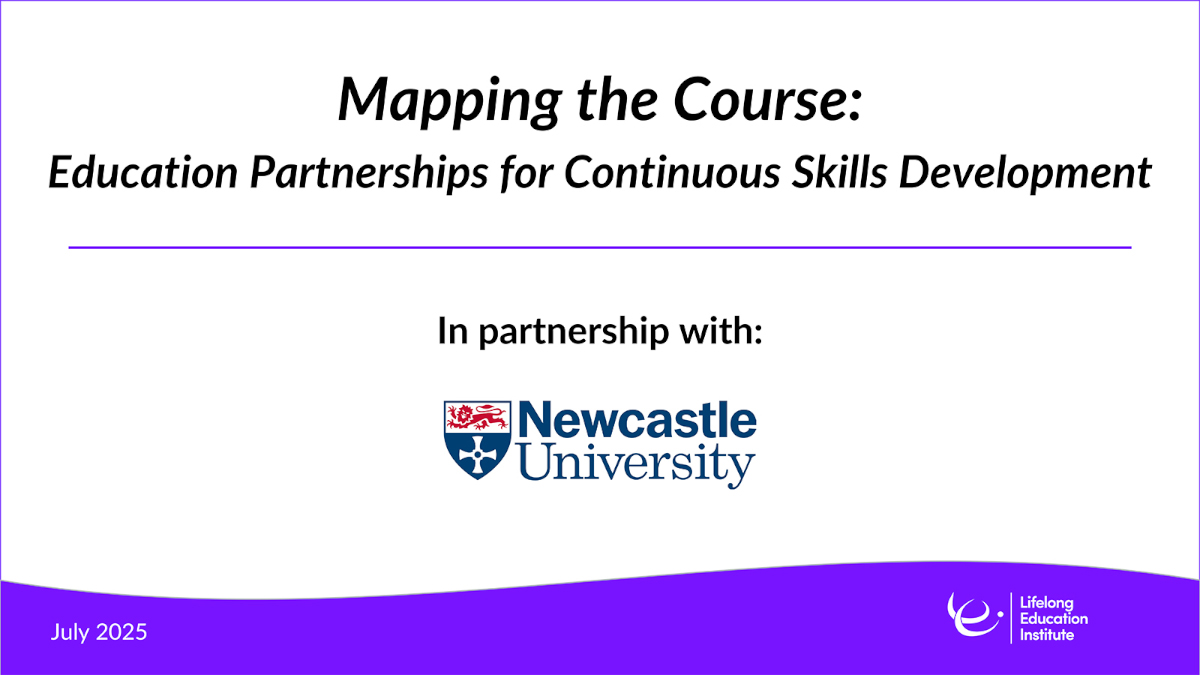Younger workers far more likely to seek career change in Covid-19 recession

One in four employees aged 16-34 are currently considering a new career as economic impact of coronavirus pandemic bites
ONS (Office for National Statistics) figures released today (15 Sept) have provided early indicators for the number of UK employees on payroll during August 2020, revealing a sharp rise of 156,000 young people (aged 16-24) without employment.
New research has shown that 20% of male workers and 18% of female workers believe their job is at risk due to the coronavirus (Covid-19) pandemic; while 25% of workers aged 16-24 have thought about a change of career this year.
The research, conducted by AAT (Association of Accounting Technicians), surveyed over 1,000 current workers across the UK to ascertain their views on how the events of 2020 have made them consider their career. It also found:
- The health and pharmaceutical sector is seen as the most secure by current workers (29%), followed by education (24%) and accountancy, banking and finance (19%)
- 32% of female workers and 31% of male workers said that job security will be a greater priority for them once the pandemic comes to an end – this rises to 44% of workers aged 25-34
- 32% of workers aged 16-24 believe that they will leave their current job within the next year, compared to just 14% of workers aged 55+
In addition, a second survey conducted by AAT of 500 UK adults who are currently looking for a new job found:
- 55% of men said that the Covid-19 pandemic was the reason that they are looking for a new job, compared to 47% of women
- 62% of men (55% of women) say they are considering moving into a more secure sector than their previous role – this rises to 70% of those aged between 25-34
- 91% of those aged between 45 and 54 say they would be willing to retrain in order to make a career change
With sectors including travel, hospitality and the arts hit especially hard by the pandemic, retraining opportunities, largely provided by vocational qualifications including apprenticeships, are rising in popularity.
Rob Alder, Head of Business Development at AAT, said:
“The impact of Covid-19 has acted as an accelerator for important career decisions, with many people across a vast spectrum of industries facing the prospect of losing their jobs, and in some cases seeking employment in more secure sectors.
“This backs up what we’ve seen recently, with nearly one in three people who’ve contacted AAT about our accounting and bookkeeping qualifications telling us that they were looking for a career change into the finance industry.
“And while a significant chunk of this is due to people losing their job, with many using their redundancy money to fund their studies, others are viewing accountancy either as a more secure career path, or are hoping to gain new finance skills to improving their chances of employability.”
Case study: “I had a feeling I was going to be made redundant – and now I’ve found a new role in accountancy”
Having been furloughed from his recruitment consultant role due to the Covid-19 pandemic, Dan Purnell, 28 from Fareham, Hampshire, felt that he needed to act quickly to improve his skillset.
“I had a feeling that I was going to be made redundant – which was confirmed in July,” Dan explains.
“My role was specialising in recruitment for engineering and aviation, two sectors which have been hit especially hard by Covid-19.”
Dan put his furlough time to good use, starting the foundation level of AAT’s (Association of Accounting Technicians) accounting qualifications back in June, in the hope of finding a role in the finance sector.
And he has made quick progress.
“I thought it would be beneficial to use the furlough period to study for a new qualification. I’ve gone on to pass the first two units already and have secured a new job at a small accountancy practice which I’m due to start later this month,” Dan says.
“I’ve really enjoyed studying, often getting up early whilst my 8-month-old son Phoenix is still asleep. Meaning once I’ve done my studying, I get to spend the day with him.”
“While studying during lockdown was a struggle, the flexibility of being able to study AAT at home while looking after a young family was a huge benefit to me.”
And Dan’s new employer, Inn to Profit Limited, has been supportive of his studies before he has even taken up his role as an assistant accountant, helping him fund his next qualification.
Dan has not only managed to find a new role in a new sector during the Covid-19 pandemic, he has also been training hard to support a charity close to his heart.
“I recently raised £640 by completing a sponsored 10k run around my local area for the charity Bliss, which supports premature babies. My son was born on Boxing Day 2019, ten weeks early, and weighing just 2lbs 12ozs.”
Case study: “I switched from the theatre to the accounting world”
Verity Bartesch, 30 from Newcastle, took quite a dramatic change in direction to find herself working in finance.
“I had been working as a Theatre Producer at Northern Stage,” Verity explains.
“My degree is in Arts Management and Drama, and I initially worked at Curve Theatre in Leicester, also running a 70-seat theatre above a pub in the city, before moving to Newcastle.”
Two years ago, Verity decided it was time for a change. She initially started studying for her AAT accounting qualifications from home, around her full-time job at Northern Stage.
“I decided to study because I’d always had an interest in finance,” Verity says.
“I felt like theatre wasn’t for me anymore, and so I took the plunge. A lot of people were confused when I told them I was leaving, because theatre seemed like a ‘dream job’.
“And initially, studying accountancy felt a bit risky to spend time and money when I wasn’t working in an accounting role, and so I didn’t know if it was going to be worth it.”
But thanks to her studies, Verity was able to secure a job in April 2019 as a team member in the accounts payable department at infrastructure and engineering company Balfour Beatty. She was promoted to assistant accountant in December.
“I’ve loved learning a new, very tangible skill,” Verity adds.
“I feel like what I’m learning is genuinely useful, and something that I can apply to many different industries and settings. Plus, when I started working for Balfour Beatty, I realised I could instantly put what I had learned to use.”
Verity accessed AAT’s qualifications through an accounting apprenticeship with Kaplan. She is given days off work to have classroom-based tuition, which is currently being delivered online due to the ongoing Covid-19 pandemic.
“It can be difficult to find the time to study and revise, and there’s always a bit of pressure because there’s often an exam not far in the future,” she adds. “Luckily, at Balfour Beatty, a lot of people are in the same boat, and so it’s the norm to be working towards a qualification.”
As well as her work and studies, Verity is a board member of Curious Arts, which develops projects and events in the North East to celebrate LGBTQ culture; and Gosforth Civic Theatre, an arts venue that is run by Liberdade Community Development Trust, a charity working with people with learning difficulties and autism.
“My unique set of skills from the theatre and accounting worlds mean that I’m in a good place to support these organisations,” says Verity.
“I still have a passion for theatre, and I’m pleased I can be involved in it in a different way.”
“I’m really pleased I had the experience in theatre, but I’m also happy I made the decision to take my career in a different direction. AAT has given me a professional qualification as well as the knowledge I need to do my job.”
Regardless of age, employment history or background, AAT welcomes anyone thinking about starting a career in accountancy or bookkeeping. Indeed over half of the people who get in touch about AAT’s accounting qualifications have never previously worked in the finance profession.
Methodology: On behalf of AAT, Markettiers (as Opinion Matters), conducted online interviews with 1,044 UK adults aged 16 and over who are currently in employment – 540 males and 504 females – and with 500 UK adults aged 16 and over who are currently looking for a new job – 231 males and 269 females. Interviews took place between Wednesday 2 and Wednesday 9 September 2020. Results have been weighted to a nationally representative criteria. All research conducted adheres to the MRS Codes of Conduct (2010) in the UK and ICC/ESOMAR World Research Guidelines. Opinion Matters is registered with the Information Commissioner’s Office and is fully compliant with the Data Protection Act (1998).











Responses